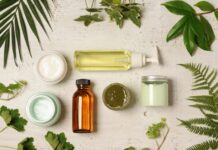Maintaining sensitive skin can be difficult because it frequently reacts negatively to many popular substances in skin care products. People with this skin type are more likely to experience dryness, redness, irritation, and even allergic reactions when using items that might appear harmless to others. Many goods that appear helpful—from harsh chemicals to fragrances—can cause more harm than good.
Therefore, choosing the best skincare products is about safeguarding the comfort and health of your skin, not simply about appearance. Just as important as understanding what to use is knowing what to avoid. You can avoid needless flare-ups by making wise decisions and keeping your complexion balanced and radiant.
This article examines five skincare products that people with sensitive skin should avoid. It will help you avoid common irritants and maintain calm, healthy skin, regardless of your level of experience with skincare or your desire to improve your routine.
Read More: Batana Oil Benefits – The Secret to Stronger Hair and Glowing Skin
1. Harsh Exfoliants
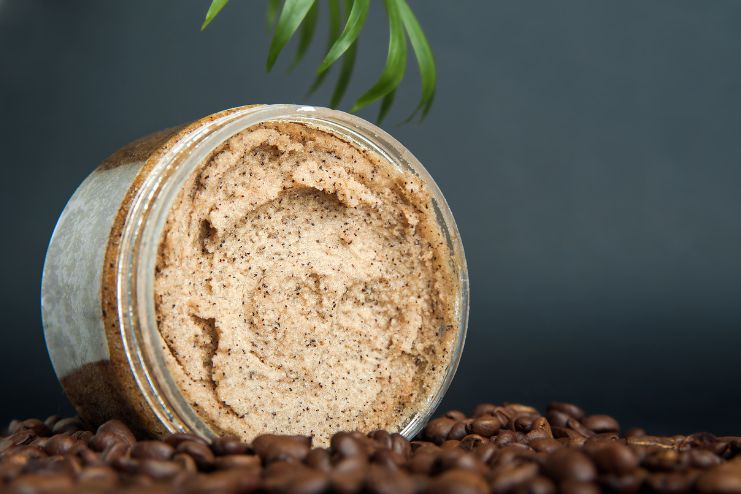
Exfoliants are crucial for removing dead skin cells, unclogging pores, and encouraging skin renewal. They can help achieve a smoother, more luminous complexion.
Exfoliation damages your skin barrier and biome, even if it may make you feel completely clean at first. Because physical exfoliation is so harsh, it can cause tiny tears in the skin’s protective layer, hinder its ability to reach deeper skin layers, and frequently leave cells dry.
Abrasive exfoliant can be very aggressive for sensitive skin. Scrubs with large, abrasive particles or treatments containing high doses of chemical exfoliants are examples of harsh exfoliants that might cause more harm than good.
Chemical exfoliation uses acids to break the connections that bind lifeless and dull cells together. It reaches deep into the skin to promote collagen synthesis and cell turnover and remove sticky debris.
Chemical exfoliation can be excellent for sensitive skin when applied gradually because it doesn’t cause irritation or severe scrubbing. However, you can have too much of a good thing, so start slowly and exfoliate sparingly!
2. Alcohol-Based Toners
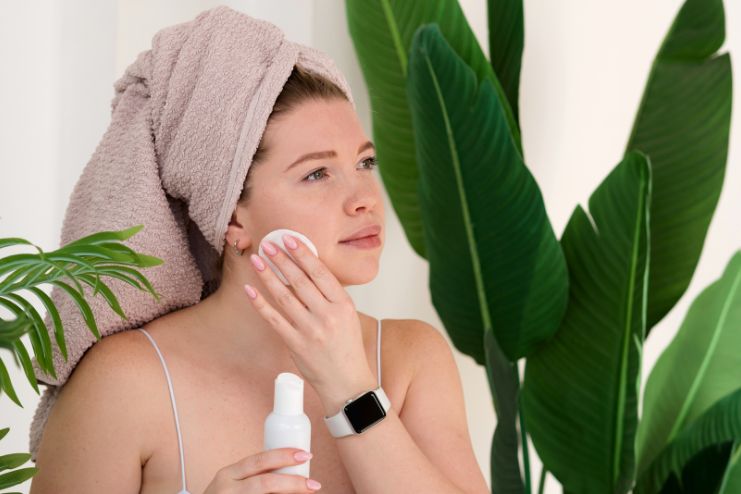
Alcohol-based toners have long been a staple of skincare routines, especially for those with oily or acne-prone skin. These toners promise oil control, a revitalizing sensation, and an instantly matte face. But does sensitive skin benefit from them, or do they cause more harm than good?
Alcohol in toners refers to a wide range of chemical compounds with various characteristics rather than a single ingredient. For sensitive skin types, some forms of alcohol may be too harsh, while others may be helpful.
The high alcohol concentration of these toners can weaken the skin’s defenses against the elements, increasing its susceptibility to harm and producing stinging or redness. For people with sensitive skin, this may cause more harm than good.
Instead, choose an alcohol-free toner meant to calm and hydrate your skin. Look for products with calming components such as rose water, aloe vera, or chamomile.
Read More: Mud Therapy: Can Clay Heal Your Skin & Detox Your Body?
3. Fragranced Skincare Products
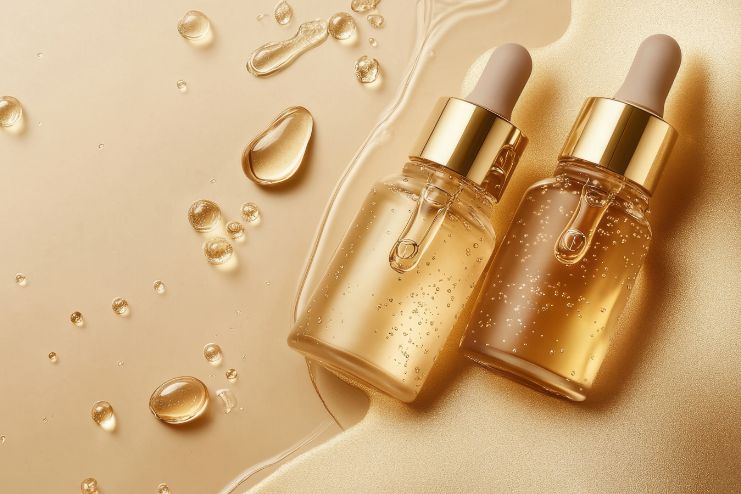
Who doesn’t enjoy a pleasant-smelling product? Maintaining our skin’s most excellent possible appearance and feel requires more than skincare. Taking a few minutes out of our hectic days to care for ourselves is the ritual of caring for our skin.
It’s crucial that we like using skincare products, and scent can enhance the user experience. When products are enjoyable to use, we are more inclined to use them frequently and receive greater benefits from their active ingredients.
Fragrances are recognized to be a prevalent cause of allergic contact dermatitis, which most commonly affects skin with a disrupted skin barrier brought on by diseases like atopic dermatitis. Certain perfumes can aggravate sensitive skin.
We advise you to watch out for these substances and avoid fragrant skincare products if you have dry and sensitive skin. Before using a product all over your body, try completing a patch test on a small patch of skin to see if there is any reaction or if you are unsure about its compatibility.
4. High-Concentration Retinoids
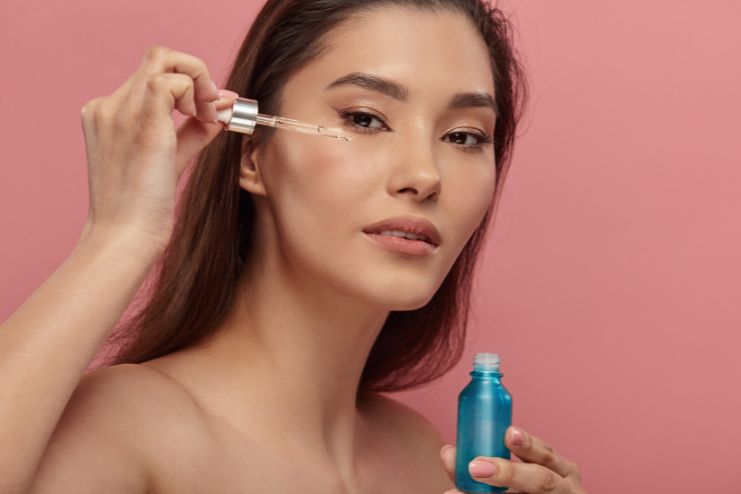
Almost all industry experts highly recommend retinol as a skin care ingredient. In addition to being one of the best anti-aging substances available, it has a lengthy and solid scientific testing history that demonstrates its status as a true hero.
The catch? Retinol’s adverse effects can be problematic, particularly if you have sensitive skin. Strong retinoid formulations frequently cause retinol irritation, including redness, peeling, dryness, and burning.
These side effects are most prevalent in sensitive skin types, where the barrier is more fragile and prone to sensitivity. Instead of improving skin problems, using too much too soon can make them worse.
Avoid going straight to a high retinol concentration. Before utilizing retinol with higher concentrations, your skin may get tolerant to retinol if you start with a lower concentration product.
When using retinol for sensitive skin, a pea-sized amount should be combined with an equivalent amount of moisturizer before applying it. Diluting the retinol may improve your tolerance to it. Sensitive skin types can still experience the benefits of retinoids with the correct technique, but without unwelcome irritation.
Read More: Slugging vs. Skin Cycling: Which Skincare Trend Is Right for You?
5. Sulfate-Based Cleansers

Cleansers are essential to any skincare regimen because they eliminate pollutants, excess oil, and debris from the skin’s surface. However, not all cleansers are kind, particularly those that contain sulfates.
Sulfate-based cleansers are generally not recommended for people with sensitive skin. They can deplete the skin’s natural oils, aggravate skin disorders such as rosacea or eczema, and cause dryness and irritation.
Sulfate is chemically classified as a salt. The name “sulfates” refers to a larger group of sulfate-based ingredients.
Sulfates dissolve oil chemically and are utilized as foaming agents in all cleansers. Some are petroleum-based, which increases the risk of cancer and hormone disruption. They also drain the skin of natural lipids, making it more vulnerable to infections, allergies, and cracking.
For sensitive skin, sulfate-free solutions are preferable to harsh foamy cleansers. Seek out mild solutions enhanced with calming and hydrating components such as aloe vera, ceramides, and glycerin. These alternatives help you retain a delicate, healthy complexion by properly cleansing without sacrificing your skin’s moisture balance.
Read More: 7 Skincare Ingredients to Avoid If You Have Sensitive Skin
Conclusion
Making careful decisions and paying close attention to product ingredients are essential when caring for sensitive skin. As this article discusses, anyone handling sensitive skin care must avoid harsh exfoliants, alcohol-based toners, scented skincare products, high-concentration retinoids, and sulfate-based cleansers. These items can irritate the skin, break the skin barrier, and trigger painful flare-ups.
Choosing mild, calming options that protect and nourish rather than irritate is crucial for preserving the health of your skin. Use hydrating ingredients like glycerin and ceramides, fragrance-free formulas, alcohol-free toners, aloe vera, low-dose retinol or bakuchiol, and light exfoliants like lactic acid.
By making a well-informed choice, you can create a skincare regimen that meets your skin’s specific requirements and maintains its calmness, clarity, and health.
References
- https://www.epiphanydermatology.com/medical-dermatology/sensitive-skin/
- https://belomed.com/the-base/are-alcohol-based-toners-bad-for-your-skin/
- https://int.eucerin.com/skin-concerns/dry-skin/scented-products
- https://www.dalton-cosmetics.com/us/fragrance-in-skincare-harmful-or-not
- https://www.realsimple.com/retinol-for-sensitive-skin-8704021
In this Article


















